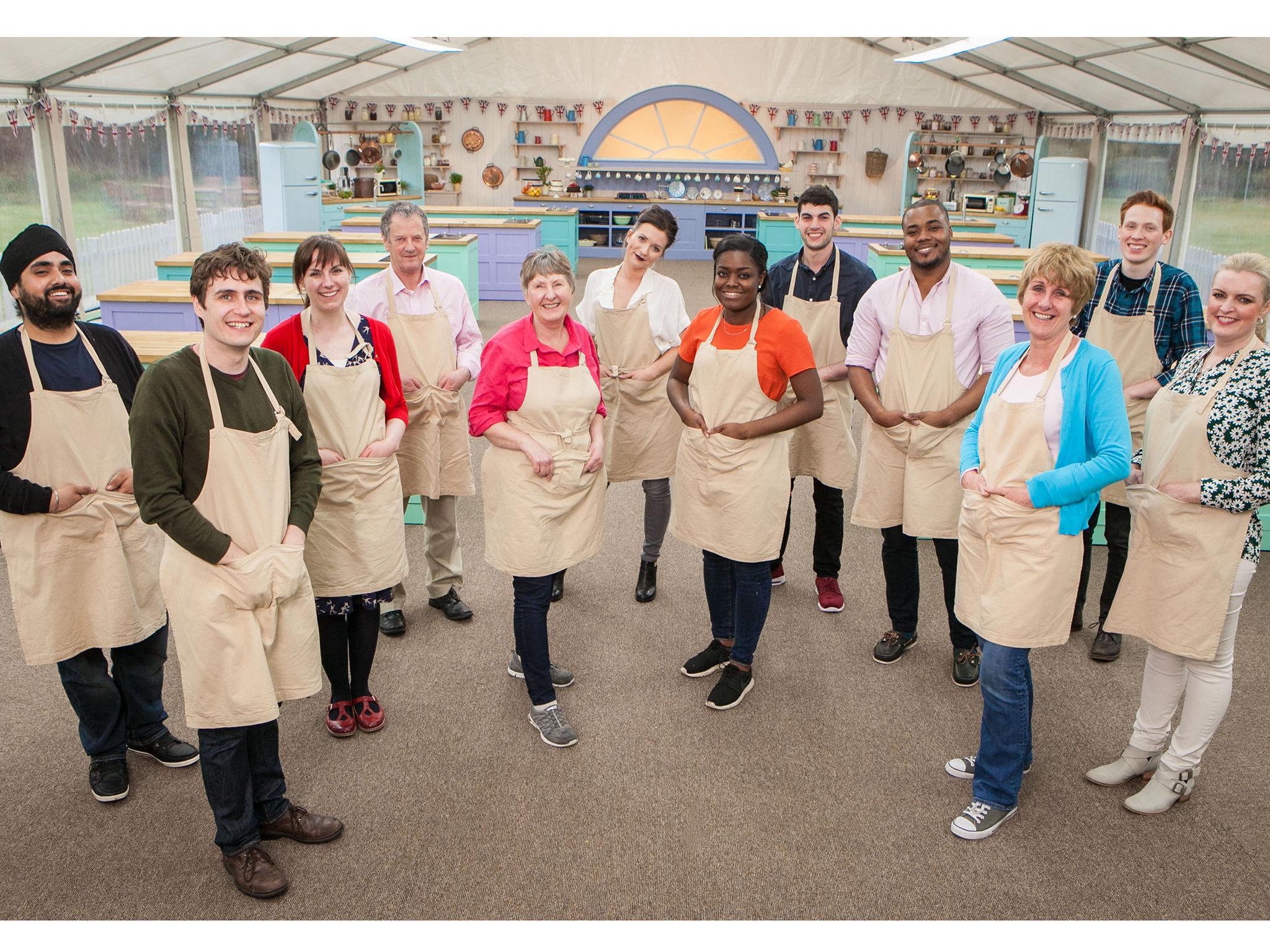The Great British Bake Off is doing battle with clean-eating evangelists who call real food 'sinful' – I hope it wins
A cabal of lifestyle bloggers with spurious claims about nutrition are spreading the gospel kale is cool and that expensive, obscure ingredients are must-haves for good digestion. 'It’s photosynthesis. Eating plants gives you energy direct from the sun,' one of them recently told The Times

Will it be the pastor who was a builder before becoming a baker, or the PE teacher who “bakes in her pyjamas”? The engineer who tries to “push the boundaries of baking” or the one who is “inspired by Far Eastern cuisine”? The new series of the Great British Bake Off is about to begin, meaning many of us will spend the next three months furiously debating the merits of marzipan, macarons and millefeuille.
And I for one can’t wait. Not just because I love seeing the contestants whip up true showstoppers or take their technical challenges from tragedy to triumph, but because it’s the time of the year when we celebrate eating well rather than eating clean.
Look, I love an avocado as much as the next person, whether it’s in a salad, as a dip, or on toast. I’m also a fan of cous cous and quinoa, of salads with decorative pomegranate seeds and of dishes that do clever things with aubergines. What I don’t love is being told these are “virtuous” foods, because the obvious flipside to that is that there are foods you should feel ashamed of polishing off.
But for the “clean eating” brigade, this is the case. From their Instagram perches, a cabal of glossy-haired, toned lifestyle bloggers with arguably spurious claims about nutrition are spreading the gospel that gluten is bad and dairy inadvisable; that kale is cool and that expensive, obscure ingredients are must-haves for good digestion. “It’s photosynthesis. Eating plants gives you energy direct from the sun,” the proprietor of “veggan” eatery Farmacy, Camilla Fayed, told The Times last week.
For the disciples of this trend, food isn’t necessarily about filling yourself up, but more about virtue-signalling: every dish must be lovingly photographed and shared, accompanied with hashtags like #wellness. A generation – mostly comprising young women – has developed an ascetic attitude towards what they eat, venerating chia seeds and courgette – but never cheesecake – and obsessing over Instagrammed pictures of creations that have probably gone bad by the time they are eaten.
I don’t get it. Maybe I’m out of kilter with my generation, but when did food stop being about pleasure? “Clean eating” is so serious, so focused on restriction. When did we decide that a few berries scattered on a bowl of coconut porridge was “better” than pancakes, or an ice cream sundae? Better for your health, perhaps, but not inherently superior. When did we decide that absolutely everything we ate had to be good for your insides, instead of, sometimes, just tasting really good?
I certainly subscribe to the idea of everything in moderation, and of course there are plenty of people who have to follow free-from diets for medical reasons. But some of these trends are ludicrous. Sweet potato toast, or avocado “buns” sandwiching burgers, because God forbid you might eat gluten? I want cereal to start the day, not a green juice that looks like something Mildred Hubble would’ve made, and coffee with cow’s milk, not almond or coconut. Give me soup or salad, sure, but let it have a side of bread or I’ll pass out with hunger. And while I don’t disagree cakes can be made with beetroot, what’s so wrong with butter, flour and sugar?
Bake Off, with its edible matchboxes and bread lions, is the antidote to this kind of “food evangelism”, as former contestant Ruby Tandoh termed it. There are other shows that do likewise, but none that quite capture the national imagination as well. When Bake Off airs, the news stories are of Britain failing in love with home baking again, and our national heroes are not wellness gurus in bikinis, but apron-clad men and women of all shapes and sizes.
Bake Off rejects abstinence, and says it’s OK, every now and then, to enjoy cream, and pastry, and chocolate ganache. It's all about slathering on the icing, and tucking into freshly baked bread and pies; about the perspective that food is for sensual pleasure, not deprivation. It's about people like Frances Quinn and Nadiya Hussein – or indeed the trim and healthy Mary Berry – who remind us that women (and men) should enjoy sweet and savoury treats, and that there's nothing “sinful” or “unclean” about food that isn't necessarily "super".
As someone who enjoys baking all year round and who sees a soggy bottom as a culinary challenge rather than a reason to go the gym, it's refreshing that for a few months of the year, we stop worrying about what we shouldn’t be eating and celebrate what’s fun about food instead.
Join our commenting forum
Join thought-provoking conversations, follow other Independent readers and see their replies
Comments
Bookmark popover
Removed from bookmarks